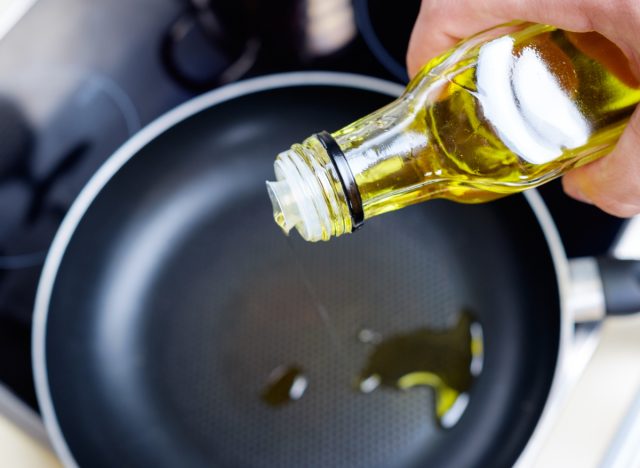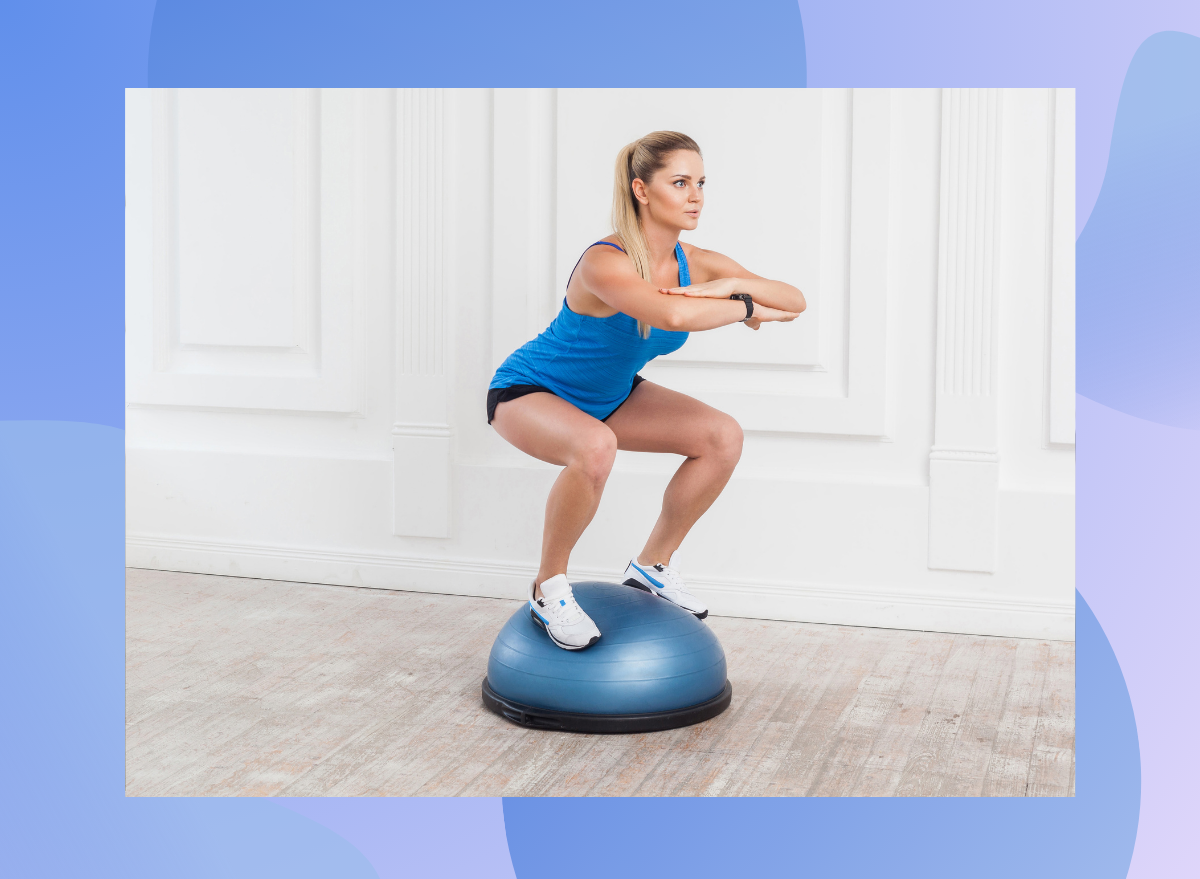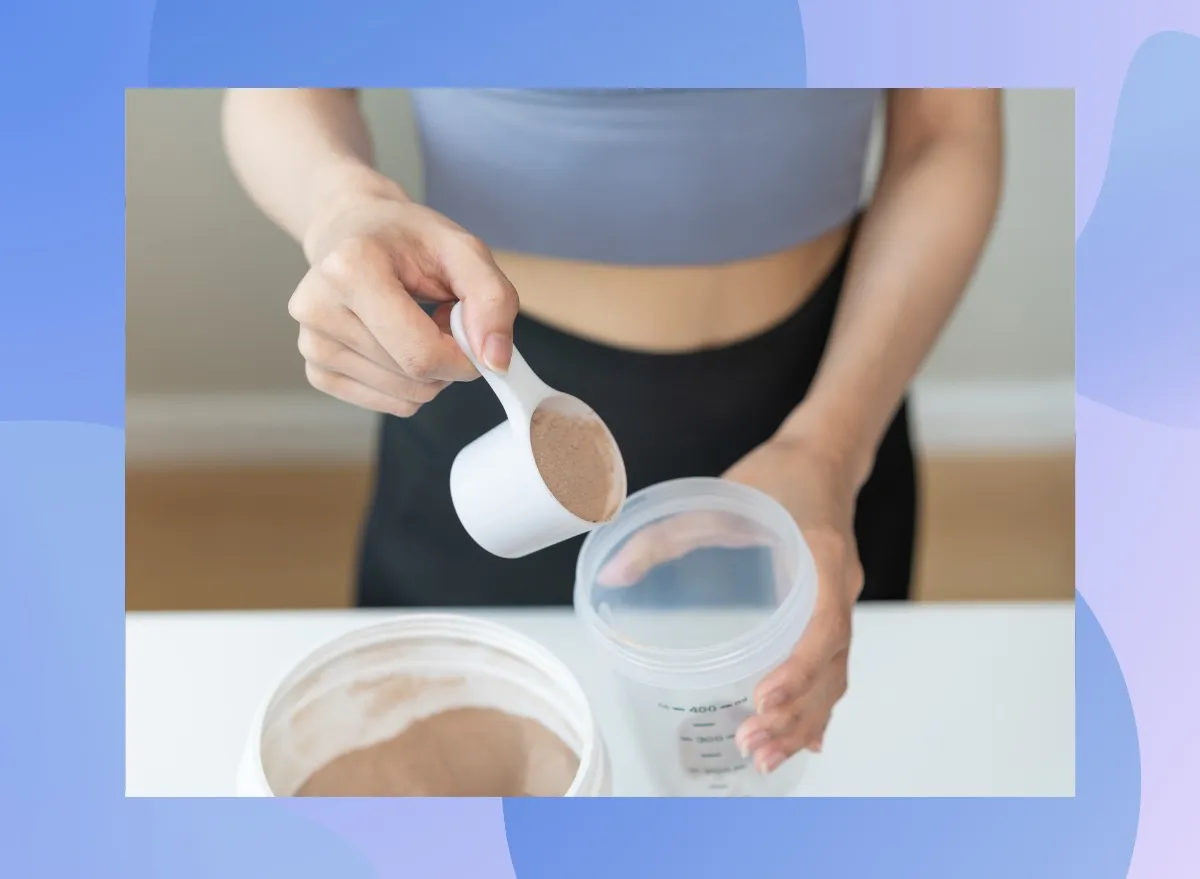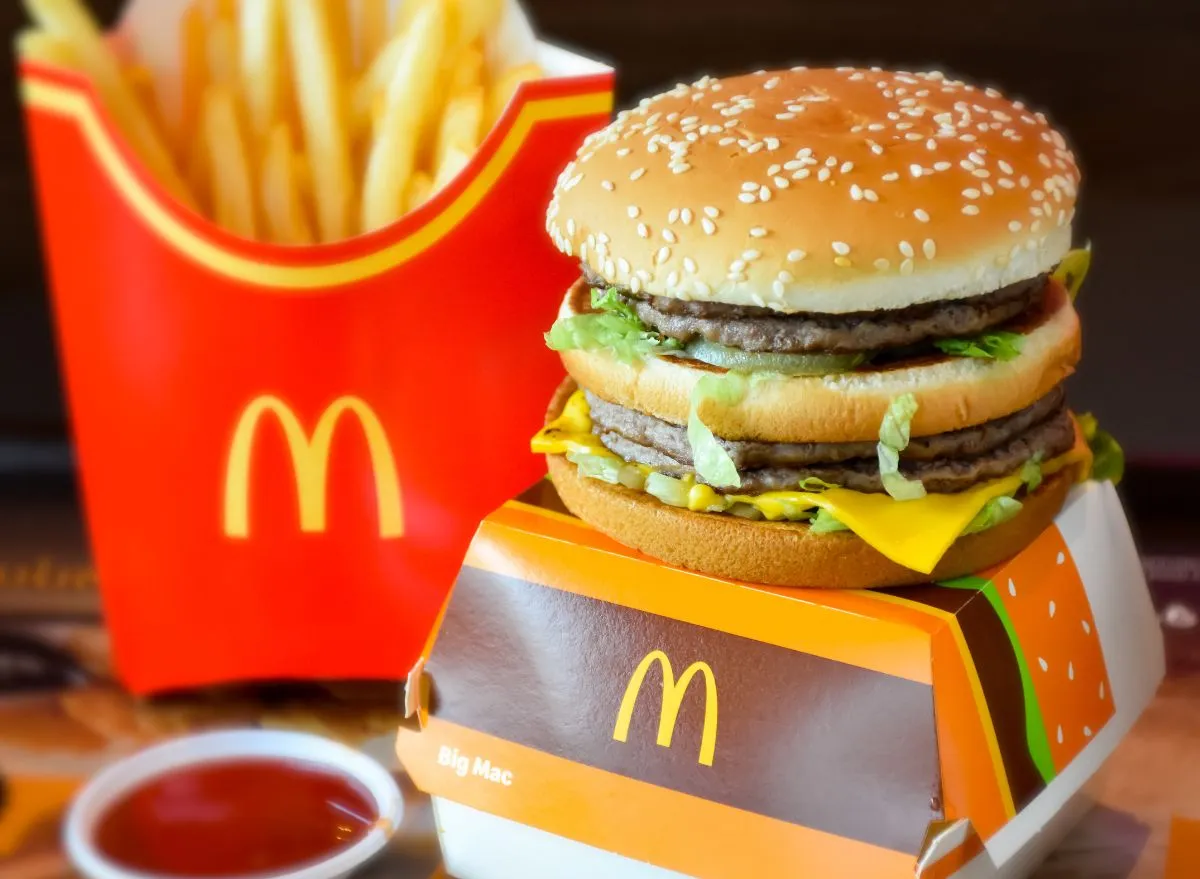Heart disease continues to be one of the leading causes of death for Americans today, which is why experts are constantly researching how to prevent it and reduce its impact on our lives.
Cardiovascular and heart diseases have many contributing factors, ranging from genetics to lifestyle and everything in between. According to the CDC, key risk factors include having high blood pressure, high cholesterol, diabetes, being overweight, consuming an unhealthy diet, and smoking or drinking alcohol in excess.
As you can see, many of these risk factors are related to our diet and what we consume on a daily basis. And while there isn’t one miracle food you can eat in order to prevent heart disease, researchers are discovering important dietary swaps you can make when you’re cooking in order to lower your risk.
According to recent research, one of the best habits you can have when cooking is using olive oil instead of butter or other saturated fats. Read on, and for more healthy eating tips check out Best Eating Habits to Have if You’re Over 50.


Replacing “unhealthy” fats with olive oil may be able to significantly improve your heart health over time and contribute to a reduced risk of heart disease.
According to a study published in the Journal of the American College of Cardiology of over 60,000 women and 30,000 men, using olive oil was associated with a decreased risk of both coronary heart disease and cardiovascular disease. The researchers concluded that replacing things like margarine, butter, dairy fats, and mayonnaise with olive oil is what contributes to a lower risk of these diseases.
READ RELATED: NHS will now include 'women' and 'girls' in guidance about periods
But how does this food swap have an impact on your heart? For one, consuming higher amounts of saturated fat has been known to lead to an increased risk of heart disease because of the way it can interfere with your cholesterol levels. This is why the American Heart Association recommends keeping your saturated fat intake at around 5-6% of your calories per day (or around 13 grams for a 2,000-calorie diet).
To put that into perspective, one tablespoon of butter already has around 7 grams of saturated fat as opposed to just under 2 grams in one tablespoon of olive oil.
According to a study in Endocrine, Metabolic & Immune Disorders, another heart-healthy characteristic of olive oil is that it has antioxidant and anti-inflammatory properties, which can help with heart and overall health maintenance.
When you swap out butter for olive oil, not only are you lowering your saturated fat intake and increasing your intake of healthy fats, but you’re also giving your heart helpful antioxidants. So, take care of your heart and go ahead and make that switch.
Source:










